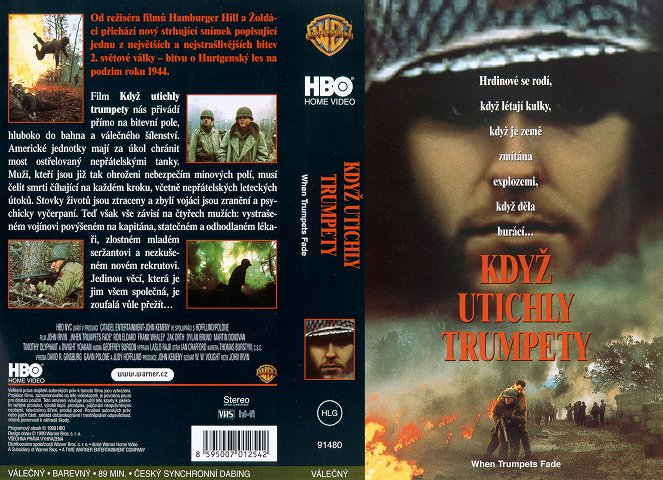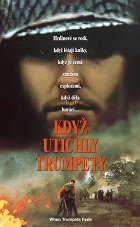Regie:
John IrvinDrehbuch:
W.W. VoughtKamera:
Thomas BurstynMusik:
Geoffrey BurgonBesetzung:
Ron Eldard, Zak Orth, Frank Whaley, Dylan Bruno, Devon Gummersall, Martin Donovan, Dan Futterman, Dwight Yoakam, Jeffrey Donovan, Timothy Olyphant (mehr)Inhalte(1)
Im November 1944 liefern sich in der Eifel amerikanische und deutsche Truppen erbitterte Gefechte. Sergeant David Manning (Ron Eldard), soeben als einziger Überlebender seines Platoons zurückgekehrt, wird sofort erneut an die Front geschickt. Mit einer Einheit blutjunger Neulinge soll er eine strategisch wichtige Brücke einnehmen. Die Mission wird zum Himmelfahrtskommando. (Sky Atlantic)
(mehr)Kritiken (2)
Eine angenehme Überraschung. Ein Kriegsfilm, der eine der Episoden der Ardennenschlacht beschreibt... Kein Heldentum, kein Pathos, kein furchtloser Held. Ron Eldard Manning ist ein egoistischer Mann, der sich nur um sein eigenes Überleben kümmert. Für diesen Preis ist er bereit, einen törichte Heldentat zu begehen... Der gute Eindruck des Films wird etwas getrübt durch die seltsame Musik und die Tatsache, dass die Geschichte keine Steigerung erfährt... Dennoch ist dieser Film wegen seines Themas (die Ardennenschlacht ist kein alltägliches Thema) und vor allem wegen seiner Darsteller interessant. Ein gutes Kriegsdrama ohne große Effekte und Massenszenen... Und auch ohne unnötig klischeehafte Ikonisierungen des alliierten Heldentums. Nur der Krieg und sein Dreck.
()
A television film that is very close to the popular series Band of Brothers in terms of its quality. Similar is the unpretentiousness, absence of pathos, glorification of war, and American patriotism. The war, as portrayed by the director, is about the filth in the trenches, stress, fear, efforts to survive, lack of provisions, and sometimes even downright cowardice. The feeling of reality is valuable, but if I were to have any critical remarks, they would be directed toward the fact that even this honestly done work does not say much about the overall character of the war on the Western Front. It was very different from what soldiers experienced on the Eastern Front or the battle lines on the Asian continent. Similar bloody battles fought on the edge of a knife were a rarity from the perspective of Americans. American commanders, considering public opinion in the United States, sought to minimize casualties and did not seek personal contact between their units and the enemy. The war was decided by material and technical superiority, and the front moved forward only slowly after the enemy had been sufficiently decimated through systematic bombing and shelling. When Americans encountered a tenacious and well-motivated adversary, such as Kesselring's units in Italy, the advance of Allied forces was halted despite their significant superiority. As for the acting and directing aspects, I have no comments or criticisms about the film; it would be great if such a meticulous approach could be considered average in cinema. Overall impression: 95%.
()
Galerie (9)
Photo © Warner Home Video


Werbung